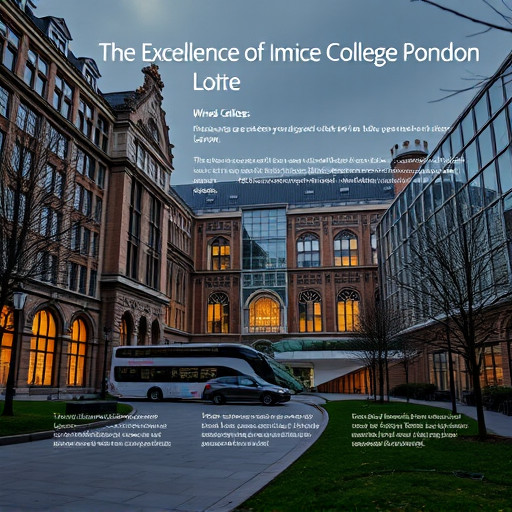Unraveling the University of Oxford – A Deep Dive into Its Unique Teaching Methods and Distinguished Academic Programs

The University of Oxford: Analysis of Oxford’s unique teaching methods and its leading academic programs provides a fascinating lens into what makes this institution one of the most prestigious in the world. With a legacy that spans centuries, the university has developed distinct educational strategies that not only shape academic minds but also influence the way knowledge is constructed globally.
Understanding the Essence of Oxford’s Teaching Philosophy
At the heart of Oxford’s educational approach lies its unique tutorial system, which sets it apart from many other universities worldwide. This section delves into the fundamental aspects that characterize Oxford’s teaching philosophy.
The Tutorial System: A Personalized Learning Experience
One of the most distinctive features of the University of Oxford is its tutorial system, where students engage in small group learning sessions, usually consisting of one or two students and a tutor.
In these intimate settings, students present their ideas, question concepts, and receive immediate feedback. This personalized attention allows for a deeper understanding of subjects than larger lecture-style formats typically found in other institutions. It promotes critical thinking and fosters intellectual independence, giving students the confidence to articulate their views effectively.
Moreover, the tutorial system creates a strong bond between students and tutors. This relationship encourages mentorship, guidance, and support throughout the academic journey, making education at Oxford not just about acquiring knowledge but also about personal growth and development.
Interdisciplinary Approach: Breaking Down Barriers
Another hallmark of the University of Oxford is its commitment to interdisciplinary studies. Students are encouraged to explore connections across different fields, promoting a holistic understanding of complex issues.
For instance, a student studying environmental science may delve into economics, political science, and ethics, enriching their primary field of study. This approach is particularly beneficial in today’s world, where problems often cannot be confined to single disciplines.
By providing access to various departments, Oxford cultivates multifaceted thinkers who can navigate the nuances of pressing global challenges. This integration encourages innovation and creativity, as students are inspired to draw upon diverse perspectives to address intricate questions.
Global Perspective: Embracing Diversity in Education
Oxford prides itself on being an international institution that attracts students from all corners of the globe. This diversity enriches the learning environment, allowing students to engage with a plethora of viewpoints and experiences.
By participating in discussions with peers from varied cultural backgrounds, students gain insight into different societal norms and values. This exposure not only broadens their horizons but also prepares them to work effectively in increasingly globalized contexts.
Furthermore, Oxford offers numerous study abroad opportunities, enabling students to immerse themselves in foreign cultures while continuing their education. These experiences reinforce the university’s goal of producing graduates who are not only experts in their fields but also well-rounded global citizens.
The Academic Programs: Excellence in Education
The academic programs at the University of Oxford are renowned for their rigor and breadth. This section explores the various disciplines offered and how they contribute to the university’s esteemed reputation.
Humanities: Nurturing Critical Thinkers
Oxford boasts a rich array of humanities programs, encompassing literature, history, philosophy, and the arts. These disciplines emphasize analytical skills, fostering a love for language, and encouraging students to think critically.
Students in humanities programs are often engaged in extensive reading and writing, honing their ability to communicate complex ideas clearly and persuasively. This skill set is invaluable in any career path, as effective communication is essential in all fields.
Additionally, the interdisciplinary nature of humanities at Oxford allows students to explore connections between different subjects, giving rise to innovative interpretations and new avenues of thought.
Social Sciences: Addressing Contemporary Issues
Social sciences at the University of Oxford address pressing societal challenges through various lenses, such as psychology, sociology, politics, and economics. The curriculum encourages students to analyze data, conduct research, and apply theoretical frameworks to real-world situations.
This focus on evidence-based decision-making equips students with the tools necessary to understand and influence social policies and practices. Graduates emerge from these programs prepared to tackle contemporary issues effectively, whether in government, non-profit organizations, or private sectors.
Natural Sciences: Pioneering Research and Innovation
The natural sciences at Oxford emphasize empirical research and hands-on experimentation, preparing students to make significant contributions to scientific knowledge. Programs range from biology and chemistry to physics and engineering, offering comprehensive training in theoretical and practical aspects.
Through access to state-of-the-art laboratories and resources, students engage in groundbreaking research projects, pushing the boundaries of what is known. This experiential learning not only enhances their technical skills but also fosters a spirit of inquiry and curiosity.
Moreover, collaboration with leading experts in the field enriches the academic experience, leveraging Oxford’s extensive network of researchers and scholars.
Advantages and Disadvantages of Studying at Oxford
While the University of Oxford is often celebrated for its excellence, it is essential to consider both the benefits and potential drawbacks of pursuing an education there.
Advantages: An Unparalleled Educational Experience
One of the most significant advantages of studying at the University of Oxford is the unparalleled quality of education provided. The combination of world-class faculty, rigorous academic programs, and innovative teaching methods creates an environment conducive to learning.
Additionally, the university’s rich history and tradition foster a sense of belonging and pride among students. The opportunity to attend lectures and events featuring influential figures in academia, politics, and the arts adds incredible value to the educational experience.
Networking opportunities abound, as students find themselves among a diverse cohort of talented individuals, which can lead to collaborations and career advancements down the road.
Disadvantages: Pressure and Competition
However, alongside the myriad benefits, there are notable challenges associated with studying at Oxford. The competitive atmosphere can be overwhelming for some students. The high expectations set by both faculty and peers can create immense pressure to perform, potentially leading to stress and burnout.
Moreover, the cost of living in Oxford can be prohibitive for some students, especially those coming from less affluent backgrounds. While scholarships and financial aid are available, navigating the financial landscape can still pose challenges.
Lastly, the tutorial system, while beneficial, may not suit every student’s learning style. Some may thrive in collaborative environments, while others might prefer more structured classroom settings.
Alternatives to the University of Oxford
While the University of Oxford represents a pinnacle of higher education, it is crucial to recognize that other institutions also offer exceptional programs and unique teaching methods.
Other Prestigious Universities
Several universities around the world provide similar educational experiences, such as Cambridge, Harvard, and Stanford. Each of these institutions possesses unique strengths and methodologies that cater to diverse learning preferences.
For instance, Cambridge University employs a similar supervision system that emphasizes small-group learning, akin to Oxford’s tutorial model. Harvard, on the other hand, incorporates case studies and problem-solving approaches, particularly within business and law programs.
Exploring these alternatives ensures that students can find an institution that aligns with their academic goals and personal aspirations.
Online Education Options
As technology continues to evolve, online education platforms have gained traction, providing accessible and flexible options for students seeking quality instruction without geographical constraints. Institutions like Coursera and edX partner with top universities to offer courses across various disciplines.
These platforms allow learners to engage with course materials at their own pace while benefiting from the expertise of esteemed faculty members. For those unable to relocate or afford traditional tuition fees, online education presents a viable alternative to conventional university experiences.
Community Colleges and Vocational Training
Community colleges and vocational training centers also offer valuable educational paths. These institutions focus on practical skills and applied knowledge, catering to students aiming to enter the workforce quickly or pursue specific trades.
With shorter program durations and lower tuition costs, community colleges provide an accessible entry point into higher education. Many also offer transfer programs, allowing students to continue their studies at four-year universities later on.
Steps to Navigate the University of Oxford Experience
For aspiring students considering the University of Oxford, understanding the admissions process and preparation steps is crucial. This section outlines the essential steps to guide prospective applicants.
Research Programs Thoroughly
Before applying, it’s important to conduct thorough research into the various programs offered by the university. Prospective students should identify their areas of interest and ensure that the chosen discipline aligns with their passions and career goals.
Engaging with current students or alumni, attending virtual information sessions, and exploring official university resources can provide valuable insights into the academic experience.
Prepare for Admissions Requirements
Each program at Oxford has specific admissions requirements, including standardized testing, personal statements, and letters of recommendation. Preparing a compelling application involves articulating your motivations, experiences, and aspirations succinctly.
Additionally, demonstrating a genuine passion for your chosen field and showcasing relevant extracurricular activities can strengthen your application.
Seek Guidance and Support
Navigating the application process can be daunting, so seeking guidance from mentors, teachers, or educational consultants can be beneficial. They can help refine your application materials and provide valuable feedback.
Joining forums and communities of prospective students can also offer support and camaraderie during this challenging time. Sharing experiences and advice can alleviate anxiety and create a sense of connection among applicants.
Tips for Thriving at the University of Oxford
Once admitted, thriving at the University of Oxford requires adaptability and proactive engagement. Here are some tips to maximize your educational experience.
Build Relationships with Faculty
Establishing strong relationships with tutors and professors can significantly enhance your academic journey. Engaging with faculty during office hours, seeking advice, and participating in departmental events can create invaluable networking opportunities.
These connections can lead to mentorship, research collaborations, and recommendations for future endeavors.
Embrace Extracurricular Activities
Getting involved in extracurricular activities, clubs, and societies is an excellent way to enrich your university experience. Oxford offers a vast array of options, from sports teams to debating societies, providing opportunities to meet like-minded individuals and develop new skills.
Participating in these activities can foster a sense of belonging and help combat the potential isolation that can arise in rigorous academic environments.
Prioritize Wellbeing
Maintaining mental and physical health is vital for success at Oxford. Balancing academic commitments and personal life can be challenging, so prioritizing self-care is crucial.
Utilizing campus resources such as counseling services, fitness facilities, and wellness programs can help manage stress and promote overall wellbeing. Engaging in mindfulness practices and maintaining a healthy lifestyle can contribute positively to your academic performance.
FAQs
What is unique about the University of Oxford’s teaching methods?
The University of Oxford is distinguished by its tutorial system, which emphasizes small group learning and personalized attention from faculty. This approach encourages critical thinking and fosters strong relationships between students and tutors.
How do Oxford’s academic programs compare to other universities?
Oxford’s academic programs are characterized by their rigorous curricula, emphasis on interdisciplinary studies, and access to world-class faculty. This sets them apart from many other universities, which may employ different teaching methods or lack the same level of historical prestige.
What are the advantages of studying at Oxford?
Factors such as exceptional academic quality, strong networking opportunities, and a vibrant cultural experience contribute to the many advantages of studying at the University of Oxford. Additionally, the institution’s history and traditions add to the overall appeal.
Are there any disadvantages to attending the University of Oxford?
While Oxford offers numerous benefits, challenges include a highly competitive atmosphere, the pressure to perform, and the high cost of living in the city. These factors can create stress for some students, affecting their overall experience.
What steps should I take to apply to the University of Oxford?
To apply, begin by researching the programs of interest, preparing required application materials, and seeking guidance from mentors or advisors. Ensuring that your application reflects your passion for the field and showcases relevant experiences is essential for success.
Conclusion
The University of Oxford: Analysis of Oxford’s unique teaching methods and its leading academic programs reveals an institution that continually evolves while staying true to its roots. Through innovative teaching methods, a diverse academic landscape, and a commitment to interdisciplinary studies, Oxford shapes not only skilled professionals but also thoughtful global citizens.
Whether you aspire to study humanities, social sciences, natural sciences, or beyond, Oxford’s profound impact on education is undeniable. By embracing both the advantages and challenges the university presents, students can embark on a transformative journey that shapes their futures and contributes to the broader tapestry of knowledge and understanding.



Leave a Comment